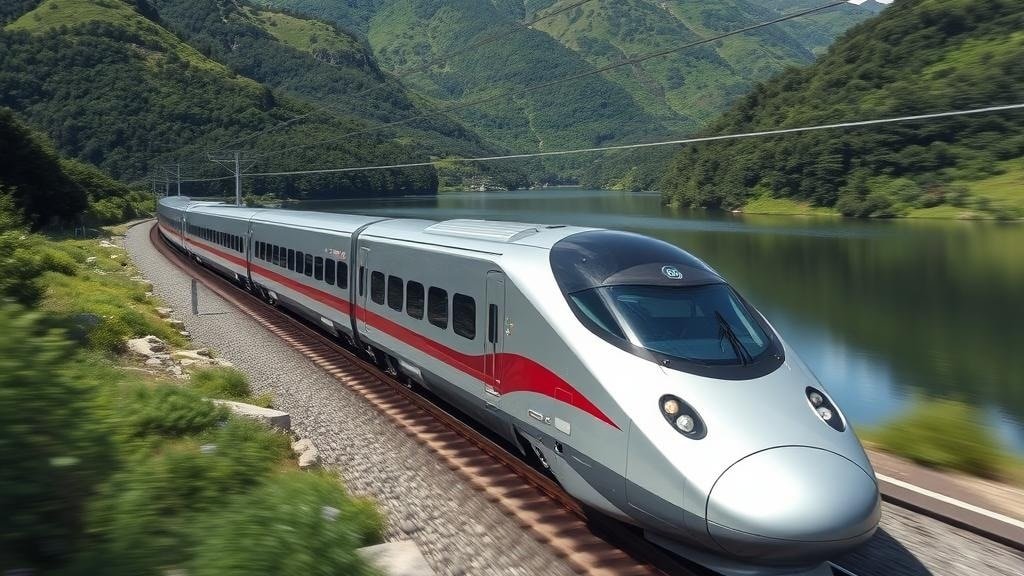India is making significant strides in indigenising the bullet train project with the introduction of its own high-speed trains and advanced signalling systems. Senior government officials revealed that the country is moving forward with the indigenisation of the bullet train and its associated signalling systems, specifically designed to support the operation of these high-speed trains on future corridors.
These trains are expected to run on the upcoming standard-gauge bullet train routes, marking a significant milestone in India’s infrastructure development. The progress of key infrastructure projects, including the Mumbai-Ahmedabad bullet train corridor, is set to accelerate following the completion of elections in Maharashtra. According to government sources, work on the bullet train corridor in the state has gathered momentum, with over 320 km of physical infrastructure already in place, and land acquisition for the project being fully completed. Drawing from the experience of the Mumbai-Ahmedabad corridor, India is poised to expand the bullet train network to additional corridors across the country, aiming to indigenously manufacture trains for these routes. The Indian-made bullet trains are set to be built on the Vande Bharat platform, which will be further enhanced to reach speeds of up to 280 km/h, with an operational average speed of 250 km/h. The focus will be on incremental improvements to bogies and suspension systems, while significant advancements in the powertrain and body design are underway. These developments are expected to take around three years before they are fully ready for deployment.
In addition, India’s ambitious bullet train project will feature Kavach 5.0, the most advanced form of automatic train protection systems, to ensure the highest standards of safety for passengers. This system will enhance the operational reliability of the bullet train service, providing a significant safety upgrade to the existing infrastructure. While India is making strides in developing its own bullet trains, the government has also acknowledged the importance of ongoing collaboration with international partners, including Japanese manufacturers. Negotiations are underway for the supply of modern trains for the Mumbai-Ahmedabad corridor under the MAHSR project, which is already 50% complete in terms of civil work.
In line with the BJP manifesto’s vision, the government is also exploring the feasibility of bullet train corridors in other regions of the country, including the north, south, and east. As part of this initiative, the Railway Board has entrusted the Integral Coach Factory (ICF) with the task of manufacturing the indigenous bullet trains, with the help of BEML. The trains, expected to cost Rs 27.86 crore per coach, will be capable of achieving speeds of up to 280 km/h, with the total contract value amounting to ₹866.87 crore. With the indigenisation of bullet trains, India is positioning itself as a leader in high-speed rail technology, with a focus on safety, innovation, and self-sufficiency in the transport sector. This initiative is a key part of India’s broader vision for infrastructure growth and economic development in the coming decades.


